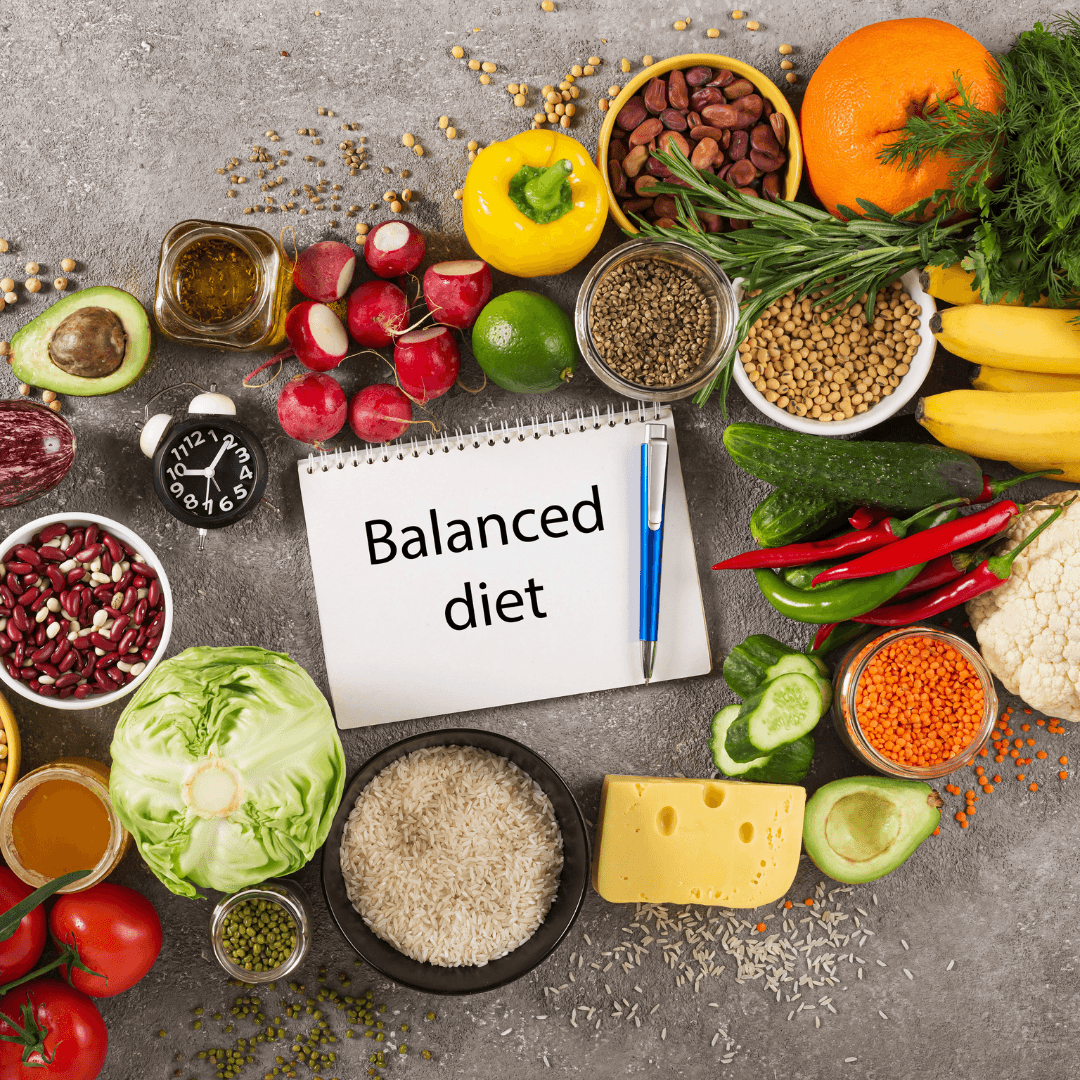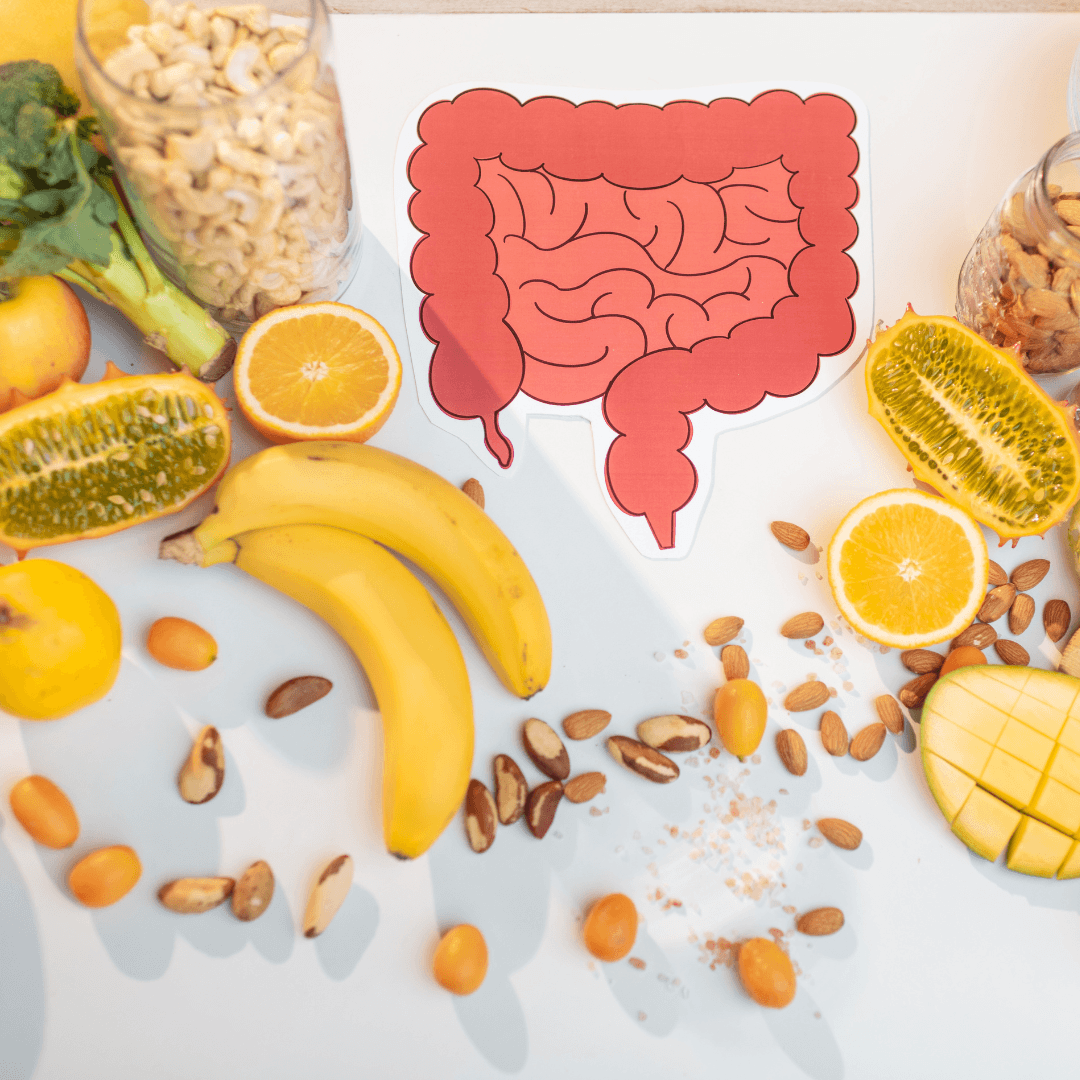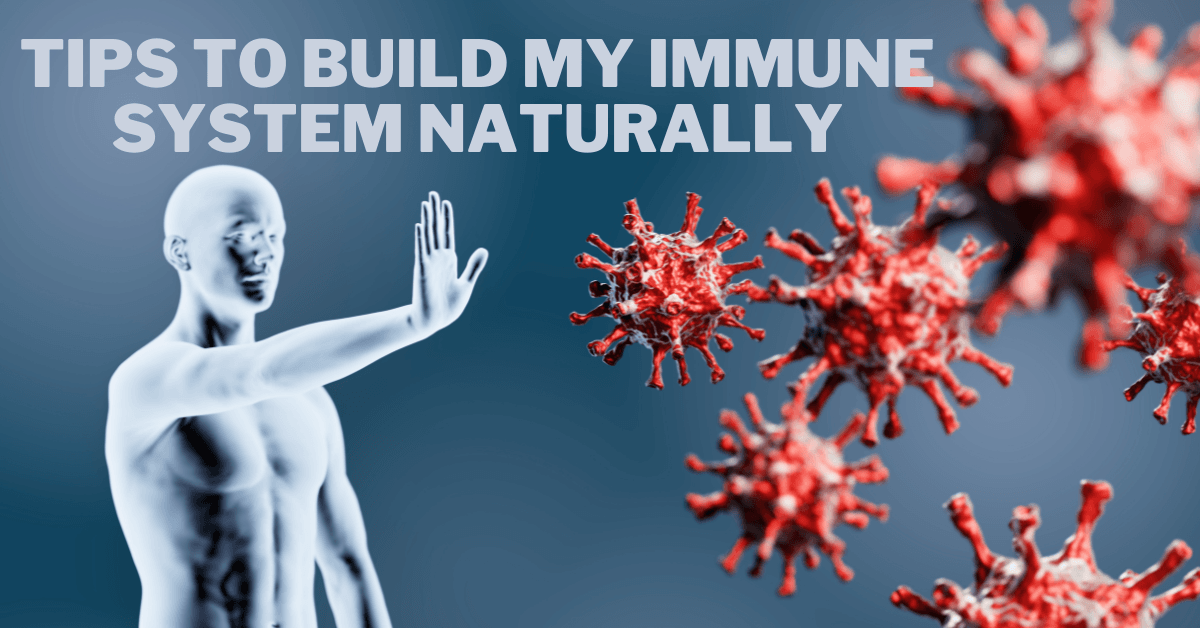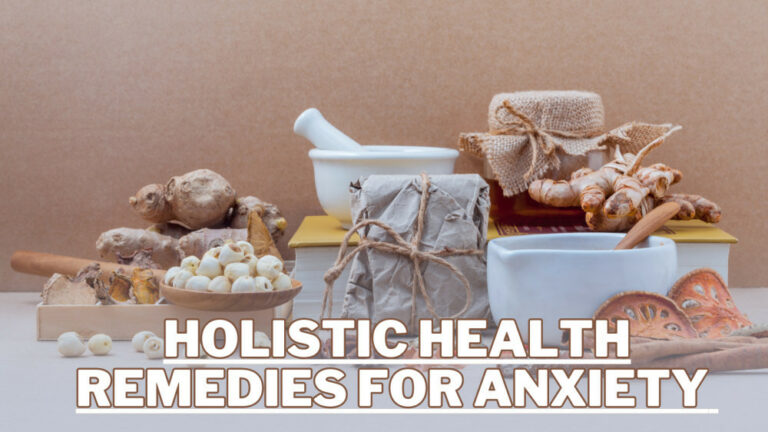Best Tips To Build My Immune System Naturally
Best Tips To Build My Immune System Naturally
Maintaining a robust and resilient immune system is more critical than ever in today's fast-paced world.
Our immune system is our body's fortress, defending against various invaders, from common cold viruses to more severe health threats.
With the increasing focus on wellness and prevention, the quest for natural ways to boost the immune system has gained significant momentum.
Explore a wealth of invaluable tips to build your immune system naturally and safeguard your health in today's fast-paced world.
This article will guide you through a treasure trove of practical tips and strategies to build your immune system naturally.
From dietary choices and lifestyle adjustments to the power of holistic remedies, we'll explore a holistic approach to fortifying your body's defences and promoting long-lasting health.
So, whether you're looking to protect yourself during flu season or simply eager to live your healthiest life, these insights will empower you to strengthen your immune system naturally and thrive in daily challenges.
Introducing The Tips To Build My Immune System Naturally
Our immune system is like a vigilant conductor in the symphony of life, keeping the balance between health and illness.
Like a well-tuned orchestra, our immunity needs care, attention, and repetition to function at its peak.
It is more important than ever to strengthen our defences as the world hums with viruses and common stressors.
Let’s explore unique and effective strategies to build and fortify your immune system naturally:

1. Balanced Diet
A balanced diet is a cornerstone of a resilient immune system as one of the essential tips to build your immune system naturally, maintaining a balanced diet rich in fruits, vegetables, and other immune-boosting foods is key to equipping your body's defences against pathogens.
Nourishing your body with various fruits, vegetables, whole grains, and lean proteins provides your immune defence with the necessary tools to combat pathogens.
Certain foods stand out for their immune-boosting prowess. Citrus fruits like oranges and grapefruits are famous for their high vitamin C content, which enhances the production of white blood cells, the infection-fighting warriors of the body.
Vegetables high in vitamins and antioxidants, like kale and spinach, are generally good for your health.
Meanwhile, whole grains like brown rice and quinoa provide the necessary energy for your immune cells to function optimally.
Remember lean proteins like chicken and turkey, as they're rich in zinc, which is crucial for immune cell development.
Maintaining a balanced diet filled with these nutrient-rich foods gives your body the building blocks to fortify its immune defences and face health challenges head-on.

2. Vitamins And Minerals
Essential vitamins and minerals support a robust immune system. Vitamin C is widely recognized for fortifying the immune system, and citrus fruits are an excellent source of this vitamin.
To fight against infections, it helps to promote the manufacture of white blood cells. They are referred to as the “sunshine vitamin,” D is obtained via sunlight and foods fortified with it.
It boosts the immune system. Another essential mineral that boosts immunity is zinc. Whole grains, legumes, and nuts are good dietary sources of zinc.
Nuts and seeds include selenium, which helps protect the immune system by lowering inflammation and oxidative stress.
Although a balanced diet is the best way to obtain these nutrients, supplements may be necessary if there are deficits, particularly in the case of vitamin D.
One of the best ways to support your immune system and keep your body healthy is to ensure it gets enough of these vitamins and minerals.

3. Probiotics And Gut Health
A flourishing gut is the foundation of a robust immune system. Probiotics, the beneficial bacteria in our gut, play a significant role in this intricate relationship.
They maintain a harmonious balance of microorganisms, fortify the gut lining, and enhance its ability to defend against pathogens.
Incorporating a variety of probiotic-rich foods like yogurt, kefir, sauerkraut, and kimchi into your diet is one of the key tips to building your immune system naturally by fostering a diverse and resilient gut microbiome.
This microbial diversity in the gut is key to a well-functioning immune system, as it improves the body's ability to identify and combat harmful invaders.
Probiotic supplements can also be an option to maintain gut health. Probiotics and fermented foods offer a frontline defence mechanism by promoting a balanced and healthy gut environment, ensuring your immune system remains strong and vigilant against infections and diseases.

4. Hydration
Proper hydration is a fundamental pillar of immune system support. Water is essential for overall well-being and plays a crucial role in various bodily functions, including transporting vital nutrients and removing waste products.
Staying adequately hydrated ensures these processes run smoothly, indirectly aiding the immune system's daily battles.
It helps maintain optimal blood circulation, which is vital for the effective functioning of immune cells.
Furthermore, hydration supports the mucous membranes throughout the body, including those in the respiratory and gastrointestinal tracts, which act as physical barriers against pathogens.
When these mucous membranes are well-hydrated, they can more effectively trap and expel potential threats.
Dehydration, conversely, can compromise these defence mechanisms, making it easier for pathogens to invade the body.
So, besides a balanced diet and other immune-boosting practices, consider the power of a simple glass of water in keeping your immune system in top shape.

5. Quality Sleep
Quality sleep is the unsung hero of immune health. While it's easy to overlook the significance of a good night's rest, its relationship with the immune system is profound.
During sleep, the body engages in several critical processes that bolster defences. These include the production and release of immune cells and proteins, as well as the removal of waste and toxins from the brain.
Insufficient or poor-quality sleep can disrupt these functions, leaving the immune system less prepared to fend off invaders.
It's like sending your immune soldiers into battle sleep-deprived and weary. To support your immune system, prioritize sleep hygiene practices.
Reducing exposure to screens and caffeine in the hours leading up to sleep can also contribute to better sleep quality.
Don't underestimate the role of rest in your body's ability to ward off illnesses – quality sleep is a silent guardian of your immune health.

6. Natural Supplements
Natural supplements, often derived from plants and herbs, can support the immune system.
Incorporating natural supplements like echinacea, elderberry, and astragalus into your routine is a powerful tip to naturally fortify and strengthen your immune system, harnessing the potential of these immune-boosting botanicals to enhance your body's defences.
Echinacea is known for its potential to reduce the duration and severity of colds, acting as a shield against respiratory infections.
Elderberry, rich in antioxidants and vitamins, has shown promise in reducing the symptoms and duration of flu-like illnesses.
The herb astragalus, utilized in traditional Chinese medicine, is renowned for boosting the immune system.
You can add these natural supplements—as tinctures, teas, or capsules—to your daily regimen.
However, since everyone reacts differently to supplements, you must speak with a healthcare provider before starting new ones.
You may strengthen your immune system and keep your general health by taking the proper supplements and following proper instructions.

7. Physical Activity
Physical activity is a potent ally in bolstering your immune system. Frequent exercise improves your immune response and keeps your body in shape.
When you engage in physical activity, such as brisk walking, jogging, or yoga, your immune cells circulate more efficiently, ready to combat intruders.
Exercise also contributes to releasing endorphins, which reduce stress and promote overall well-being.
Aim for at least 150 minutes of moderate-intensity exercise each week, whether through dedicated workouts or active daily routines.
Incorporating movement into your day can be as simple as taking the stairs, walking or biking to work, or practicing a quick home workout.
The key is finding an activity you enjoy, as this will make it easier to commit to regular exercise. By adopting an active lifestyle, you're not only improving your physical fitness but also reinforcing your body's defences against illness, which is especially important in today's world.

8. Stress Reduction
The toll of chronic stress on the immune system is substantial, as prolonged stress can weaken its defences.
To fortify your immune health, managing stress is essential. Techniques like meditation, yoga, and mindfulness offer potent stress-reduction strategies.
Meditation calms the mind and lowers stress hormones, positively affecting the immune response.
Yoga combines physical activity with mindfulness, enhancing both physical and mental well-being.
Including mindfulness techniques like mindful walking or deep breathing into your everyday routine will help you stay calm.
Hobbies, quality time with loved ones, and doing things you're excited about are all excellent ways to unwind.
By reducing stress, you are promoting a sense of emotional balance and overall wellness and empowering your immune system to function optimally.

9. Hygiene And Preventative Measures
Maintaining good hygiene is a cornerstone of immune health. Regular handwashing, especially during flu seasons or amid contagious outbreaks, significantly reduces the risk of infections.
Proper handwashing with soap and water effectively removes harmful microorganisms, preventing their entry into the body through the eyes, nose, or mouth.
Vaccination is another essential aspect of preventive care.
Vaccines introduce the body to a harmless part of a pathogen, stimulating the immune system to create defences against future encounters with the actual pathogen.
By staying current with recommended vaccinations, individuals can strengthen their immune response to specific diseases, thus reducing the risk of severe infections.
Good hygiene practices and timely vaccinations are proactive steps that effectively empower the immune system to ward off potential threats.

10. Holistic Approaches
Holistic approaches to immune system support bring together ancient wisdom and natural remedies to enhance overall well-being.
Traditional Chinese Medicine, rooted in balance and energy flow principles, offers herbal treatments and acupuncture to support the immune system's harmonious function.
Ayurveda, a 5,000-year-old system, promotes immune health through diet, herbal remedies, and practices that align with one's dosha or constitution.
Based on the principle of “like cures like,” homeopathy utilizes highly diluted substances to stimulate the body's innate healing mechanisms.
These holistic traditions aim to address physical health and promote emotional and mental well-being, acknowledging the integral connection between mind and body.
Exploring these holistic modalities can offer individuals a well-rounded approach to immune health, considering their unique constitution and needs.

11. Immune-Boosting Recipes
Delicious and nutritious immune-boosting recipes can be a delightful addition to your quest for a robust immune system.
Whether it's a vitamin-packed citrus smoothie, a hearty vegetable and bean soup, or a colourful salad bursting with antioxidants, these recipes can turn immune support into a tasty culinary journey.
For example, a hearty chicken and vegetable stir-fry is rich in lean protein and an array of vegetables like bell peppers, broccoli, and spinach that provide essential vitamins and minerals.
A simple yet nourishing lentil and spinach soup offers a fiber and iron-packed option for plant-based eaters.
These recipes make the process enjoyable and promote long-term adherence to an immune-boosting lifestyle.
Incorporating flavourful herbs and spices like turmeric, garlic, and ginger adds an extra layer of immune support, turning each meal into a delectable act of self-care.

12. Herbal Teas
Herbal teas have been cherished for their therapeutic properties for centuries, and they offer a delightful and aromatic way to boost your immune system naturally.
With its distinct floral notes, Echinacea is renowned for its immune-strengthening abilities. It is a well-liked option in the colder months because it might lessen the intensity and length of colds.
Ginger, well-known for its zesty and spicy taste, has antioxidant and anti-inflammatory properties. It can relieve nausea, clear up a sore throat, and enhance general well-being.
Elderberries are full of vitamins and antioxidants that support a strong immune system and have a rich flavour.
It's particularly favoured for its potential to reduce the symptoms of viral infections. The beauty of herbal teas lies not only in their flavours but in their versatility.
You can mix and match various herbs to create your immune-boosting blends. Whether you choose a single herb or concoct a personalized mixture, these herbal infusions provide comfort and defence for your immune system, making them a nourishing addition to your daily routine.

13. Adequate Sun Exposure
Adequate sun exposure is an often underestimated yet incredibly valuable tip for strengthening your immune system naturally.
When exposed to sunshine, your skin has a unique ability to create vitamin D, an essential nutrient important for immunological function.
The sun's soft warmth while you spend time outside helps your body to produce this vital vitamin.
The pathogen-fighting capabilities of monocytes and macrophages, two crucial components of your immune system, are bolstered by vitamin D.
It can also influence innate and adaptive immunological responses, strengthening the immune system. But finding a balance and using safe sun exposure techniques is crucial.
Prolonged or excessive sun exposure can lead to sunburn and skin damage, so following sun safety recommendations is essential.
Spend a reasonable amount of time outdoors, especially during the sunnier months, and remember to use sunscreen, wear protective clothing, and consider the sun's intensity based on your location and skin type.
By embracing the sun in moderation, you can harness its immune-boosting benefits while safeguarding your skin's health.

14. Aromatherapy With Essential Oils
Aromatherapy with essential oils offers a delightful and holistic approach to nurturing your immune system naturally.
Aromas can influence our mood, stress levels, and immune responses. Essential oils like lavender, with its calming scent, can help reduce stress, which, in turn, benefits the immune system.
With its refreshing aroma, Eucalyptus oil can support respiratory health, aiding your body in warding off potential threats.
Tea tree oil can make an area cleaner and lower the risk of infection because of its antiseptic qualities.
Incorporating these essential oils into your daily life through diffusers, massage oils, or even a relaxing bath can promote overall well-being while giving your immune system the care it deserves.
As you indulge in the scents and sensations of aromatherapy, you're pampering your senses and providing your body with a natural boost for immune health.

15. Laugh And Play
Laughter is a simple yet potent way to fortify your immune system naturally. Laughing and joyful activities strengthen your immune system, which is a great benefit.
Laughter has the remarkable ability to reduce stress hormones in your body. Lower stress levels mean less wear and tear on your immune system, allowing it to function optimally.
Whether watching a hilarious comedy, spending quality time with your beloved pets, or participating in activities that make your heart light up with happiness, you're actively supporting your immune health.
So embrace the lighthearted moments, and let the laughter be your medicine. Not only does it feel fantastic, but it also contributes to a robust and resilient immune system that can better defend your well-being.

16. Regular Social Interaction
Regular social interaction is more than just a source of joy; it's a boon for your immune system.
The quality of your emotional well-being profoundly affects the functionality of your immune system.
Keeping close social ties and cultivating friendships and family bonds can be effective strategies.
Engaging in conversations, sharing experiences, and simply being in the company of those who uplift your spirits can reduce stress and promote positive emotional states.
A happier and less stressed mind creates a more favourable environment for your immune system to operate efficiently.
In today's digital age, even if physical gatherings are challenging, virtual connections can serve as valuable sources of social interaction.
Regular video calls, messages, or online group activities can keep you connected and emotionally supported.
So, stay socially engaged, whether in person or through screens. Your immune system will thank you for it, functioning optimally in the backdrop of robust emotional well-being and positive social connections.
Conclusion
In the quest for a robust and resilient immune system, we must recognize that our body's defences are deeply intertwined with our overall well-being.
These unique tips are not just about strengthening your immune system but about nourishing your spirit and fostering a profound sense of vitality.
Your immune system is not a standalone entity but a reflection of your physical and emotional health.
By embracing these diverse strategies, you're better prepared to ward off illnesses and build a foundation for a more vibrant and balanced life.
So, remember that your immune system thrives when your whole self flourishes, whether it's sipping on herbal teas, basking in the sun, or sharing laughter with loved ones.
I trust you enjoyed this article on the Best Tips To Build My Immune System Naturally. Please stay tuned for more blog posts to come shortly. Take care!
JeannetteZ
>>>Please click here to read my all-inclusive article about A Comprehensive Guide To Healing Naturally<<<
>>>Are you interested in Natural Healing Through Herbs? Please click here for my #1 Recommendation<<<
Your Opinion Is Important To Me
Thoughts? Ideas? Questions? I would love to hear from you. Please leave me your questions, experiences, and remarks about this article on the Best Tips To Build My Immune System Naturally in the comments section below. You can also reach me by email at Jeannette@Close-To-Nature.org.
Disclosure
This post may contain affiliate links. I earn from qualifying purchases as an Amazon Associate and other affiliate programs. Please read my full affiliate disclosure.
You might also enjoy these blog posts:
Homemade Face Masks For Glowing Skin
What You Should Know As A Gardener
Home-Made Remedies For Cracked Heels
How To Design Your Own Home Garden








